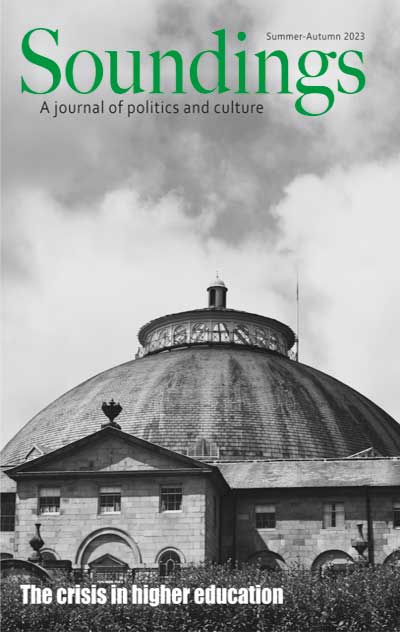
The reflections of a health-practitioner on entering academia
Soundings - Print ISSN 1362-6620 - Online ISSN 1741-0797
Volume 2023 Number 84 & 85
The reflections of a health-practitioner on entering academia
Amy Morton pages 90‑102
DOI: 10.3898/SOUN.84-85.05.2023
Abstract
This personal and experiential account reflects on the transition the author has made from working as a midwife and health visitor to becoming a clinical academic within a university setting. This was a shift between a profession with a very clear sense of itself and one where there are a large number of spoken and unspoken issues - of status, professionalism, class, gender, to name a few. These can reinforce a sense of imposter syndrome among people whose trajectories into academia have not been traditional and unilinear. A commonly-shared difficulty in internalising academic success, reinforced by dominant ideas about what academics are/should be like, is embedded in the institutional discourses that circulate in academic environments, particularly for working-class academics. ‘First in family’ students are much less likely to attend a Russell Group university, and are also more likely to drop out; and this filter means that many fewer become academics. Certain subjects are also perceived as being of higher value; for example English Literature is held in higher esteem than a vocational course such as nursing. Indeed, this notion of being ‘lesser than’ also applies to higher education institutions: the author’s place of work, Birmingham City University, with its roots in a former polytechnic, is supposedly inferior to its geographical neighbour, the University of Birmingham. In reflecting on the current neoliberal landscape in HE, the author argues that a recognition of the equal value of vocational courses is urgently required - for students, for academics, and for the future of the whole sector. There is also discussion of the usefulness of the pedagogy of vocational training for other areas of teaching. The article includes an exploration of some of the wider problems in the current neoliberal higher education landscape. It also discusses another, more particular, source for a personal sense of dissonance for HE academics in this field. The narrative from the university is that students are customers: they pay considerable fees to complete the course and should leave with a degree and a professional qualification. Academic regulations are skewed towards delivering a commodity to the students, sometimes to the detriment of what is surely the key priority - to ensure that future practitioners are qualified, and possess the skills and attributes necessary to deliver safe, patient-centred care.
SORRY - you are not registered as being permitted online access to the full text of this article
You have the following options:
- If you are viewing this via an institution or academic library you can ask that your institution takes out a Subscription to this journal.
- If you already have a Personal Subscription please login below
Forgotten your username / password? Click here to locate
- Purchase an annual Personal Subscription
PRINT + DIGITAL personal subscription (£40 / year)
DIGITAL personal subscription (£30 / year)
A Personal Subscription provides immediate access not only to the single article you are seeking, but also to all past and future articles in this journal up to the expiry of your annual (calendar year) subscription. - Purchase immediate access to this single article (UK£7.00) - Buy article Coming Soon
To cite this article
Amy Morton (2023) The reflections of a health-practitioner on entering academia, Soundings, 2023(84 & 85 ), 90-102 . https://doi.org/10.3898/SOUN.84-85.05.2023
